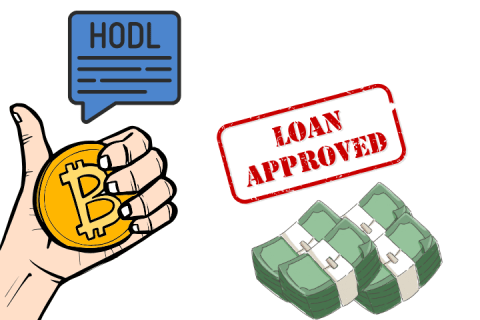Remitting it Forward
BankerAdvisor's Ongoing Series of How Fintech is Making Lives Better

Revelations from the FTX fraud will likely bring more disillusionment about the promises of the neo-financial marketplace for more decentralized and democratized financial systems.
The cryptoverse now has a clear, villainous face in Sam Bankman-Fried that the collapse of Terra Luna and Three Arrows Capital did not. Super Bowl ads, stadium names, and the scores of celebrities, athletes, and politicians enmeshed in the FTX fiasco have a titillating quality that has captured the public's imagination the way the Pets.com sock puppet did in the dot- bomb era of the early 2000s.
However, the more distressing stories of everyday people whose college, retirement and health savings funds were lost in FTX and other schemes will add to a narrative that this new world is untrustworthy and worse, fraudulent.
BankerAdvisor's stated mission is to combine user reviews, curation and research to be a helpful resource within the confusing worlds of banking, finance, wealth management, and fintech. The financial universe is massive and expanding daily, with more than 10,000 fintech startups registered in the US and 26,000-plus globally. Bad actors among those numbers are a given. And while macroeconomics have slowed investments and deals in 2022, the irresistible combination of need, convenience, and ease of use fuels adoption at faster rates than radio, TV, wireless devices, and the Internet.
Last year a full 13% of the US public says it traded in crypto and if one counts broad-based peer-to-peer platforms like Venmo and PayPal, adoption in the US sits at approximately 95%. Expansion and innovation are happening more quickly than careful arbitration can manage, but we're going to attempt to eat the elephant one bite at a time.
Our series doesn't begin with crypto or glossy international investment banking, but with a one of the most fundamental services in global banking and finance: remittances.
Humble Remittances
A remittance is simply money sent from one party to another, such as the payment of an invoice or a bill. Today, "to remit" or "send back", is most commonly applied by a foreign worker sending money back to his or her home country. Services like WorldRemitcater to these users with a promise of "fast, flexible and secure international money transfers across the world." WorldRemitprovides services that can top up credit for a pre-paid mobile phone or send money directly to bank accounts.
Traditional banking fees for remittance payments can reach 4-6% (The World Bank estimated all global remittance payments averaged 6.1% in 2022) and higher for some banks, depending on the country in which transactions are taking place. WorldRemit says it is 41% cheaper than sending money via most banks. It also offers the first three transfers for free, and for most countries, there is a standard fee of $3.99 or as low as $1.99, depending on the transfer criteria.
The Unbanked and Underbanked
A highly useful delivery mechanism forWorldRemitis cash pickup. Money is collected free of fees by a receiver at any number of locations across Africa, the Americas, and Asia, including countries like Honduras, Nepal, and Zimbabwe.
The ability for recipients to get money directly is especially useful for those with limited or no banking services. Today, there are an estimated 1.7 billion people, or 30% of the world, who are unbanked. In El Salvador, for example, only 30% of adults have bank accounts, according to Acuant. WorldRemitallows for cash pickups at any branch countrywide for three different banks in El Salvador.
Free Transfers
What about no fee or commission transfers for consumers? For Maijid Moujaled and Ham Serunjogi, the co-founders of Chipper Cash, they are offering consumers just that: free cross-border mobile money transfers across Africa between consumers. Chipper says traditionally people have thought about money moving one way — into Africa — but not across Africa's countries and within Africa, such as Nigeria to Kenya.
Chipper can leverage a consumer freemium model by monetizing its suite of products tailored to businesses. It facilitates consumer payments for bill payments services, such as water and electricity, to help drive adoption. Chipper is now operating in Ghana, Kenya, Tanzania, Rwanda, Nigeria, and South Africa and says it has more than 700,000 people using the service. Jeff Bezos and Joe Montana are both investors, and the firm has raised more than $22 million.
Lifeline for Individuals and Nations
Remittance and cross-border payments help sustain families, particularly at the lower rungs of social-economic standing, but they are not without politics and controversy.
The UN and World Bank estimate that 3.6% of workers live outside their home countries and that more than $360 billion is sent back home from migrant workers and immigrants, a number of whom have entered countries illegally. Remittances from workers abroad can account for 20% or more of a developing nation's GDP, such as Jamaica, Haiti, Nepal, Somalia, and Lebanon.
The cash flow into these nations is believed to primarily support basics like food, clothing, and shelter for recipients and does not go toward economic development or expansion. Other concerns among security experts and analysts are that remittance payments help underwrite terrorism, drug trafficking, and continued encouragement of dangerous illegal immigration and human trafficking.
Blockchain and Remittances
Cathy Wood, the head of ARK Invest and tech media maven, has written in its Big Ideas 2022 report that the combination of blockchain and digital wallets will command nearly $50 trillion in equity market capitalization by 2030. Bitcoin may also be used for 50% of global remittances within the same time. Bitcoin, the report points out, is taking market share as a global settlement network with more than $13 trillion in transactions in 2021, surpassing Visa's payments volume.
The report also points out that "Square's Cash App and PayPal's Venmo have amassed 74 million and 82 million annual active users in the past 8 and 11 years, respectively," surpassing the number of deposit account holders at J.P. Morgan. J.P. Morgan has 60 million deposit account holders.
An early proponent of leveraging blockchain for remittances is Diem, a blockchain-based payment network. Silvergate Capital Corporation acquired Diem, its intellectual property, and other technology assets. Silvergate said it is, "one step closer to launching a next-generation global payment system that is faster, easier to use, and more cost-effective than existing solutions."
Faster payments, lower fees, better uses, new innovation, and accessibility at all rungs of society are part of the promise of fintech platforms to send money around the world to people most in need.



